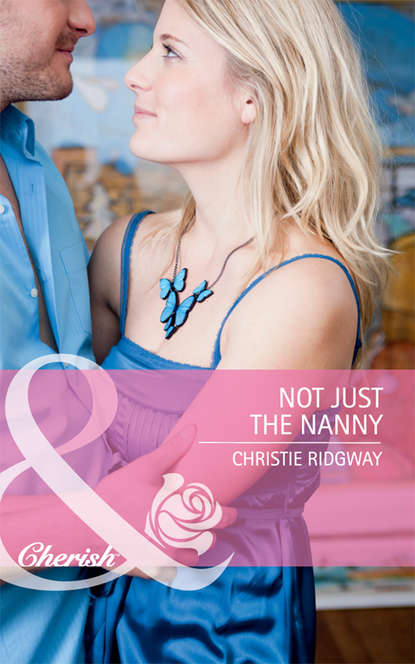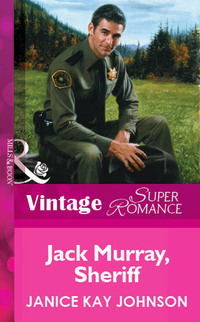
Полная версия
Christmas Presents and Past
Emboldened, she lifted her head and kissed his jaw. “I’m on the pill.”
“Really?”
“After I met you, I started complaining every month about my cramps. So Mom was okay with it.”
Will was still laughing when his mouth claimed hers. Almost immediately he began to tug at her clothes. She tried to help, and they whacked their noses against each other, both of them laughing again even though they had tears in their eyes, too.
Then he spotted his bedside clock and exclaimed, “Damn! We need to kind of hurry. It’s not that long until my parents get home.”
So they did, shedding clothes and eyeing each other shyly but with rapt interest, kissing deeply, Will thrusting his thickened penis against her. Even after she parted her legs, it took some fumbling on his part to find her opening.
When he pushed, Dinah felt first pressure, then pain. When she stiffened, he went still.
“Are you okay?” He was breathless.
She managed a nod, although her teeth were clenched.
“Because I can stop.”
“Do you want to?”
“No!”
“Then…then just do it!”
So he did, and she felt as if her innards were being ripped open. She panted while he pumped a couple of times, then jerked and collapsed on her. Even when his penis shrank and slipped out of her, she kept hurting.
Wounded and indignant, she thought, Why didn’t anybody tell me it was so bad the first time? Christina and Susan had giggled about losing their virginity! And “J,” the author of The Sensuous Woman—which they’d all passed around and Dinah, at least, had read with a flashlight under the bedcovers so her mother wouldn’t see the book—didn’t say anything about how you had to just lie there rigid the first time and hope sex wasn’t always like that. Because if it was, who’d want to do it again?
“I’m sorry,” Will said. “I didn’t know it would be so hard to push through your, um…”
“What?” she snapped. “Or you wouldn’t have done it?” She rolled away to hide her tears.
He was quiet for a minute. Then, voice low, he said, “I wanted you so much. But maybe you weren’t ready.”
“I was!” she cried, turning back to him, her face wet. “I just didn’t know it would hurt so much!”
His eyes were a rich, dark blue, and so kind she cried harder. “It’s not supposed to hurt ever again.” Then he said, “Oh, crap!” and jackknifed to a sitting position.
Dinah heard it, too, the sound of the garage door being opened. “Oh, God, I’m a mess!”
She jumped up, grabbed her clothes and raced down the hall for the bathroom. There she cleaned herself up, got dressed and washed her face over and over. While using a brush she found in a drawer to smooth her hair, she stared at herself in the mirror in despair. Her face was still blotchy, her nose red and her eyes puffy. But she couldn’t stay in here forever!
Finally she just walked out. Will was already in the living room, talking to his parents like nothing was any different. Glancing over his shoulder at her as she came down the hall, he said, “I’d better take Dinah home.”
At the sight of him, lanky and reassuring and, oh, just Will, her eyes welled with tears again.
“I’m sorry,” she said to his mom and dad. Inspiration came to her. “I just…I heard this guy I knew in school was hurt really badly in Vietnam. And I was telling Will, and…” She fled back to the bathroom for a tissue.
When she came back out, they were really nice. That made her feel guilty for lying to them, so she cried again once she and Will were in his car driving away from the house.
“I don’t know what’s wrong with me!” She mopped her tears.
“Do you wish we hadn’t made love?”
“No! That’s not it.”
But it was why she couldn’t seem to stop crying, Dinah realized. She had this huge iron cauldron of emotions bubbling inside her, and it was hard to separate one from another. She closed her eyes and imagined herself cooking a stew, skimming one emotion after another from the top. Disillusionment, because the experience had been pretty awful. And mixed in like pepper, stinging, was some fear that it had been such a comedown for Will, he wouldn’t want to be with her anymore.
In her mind, she kept skimming, trying to identify fleeting whiffs of emotion. Despite the tears, she felt exhilaration because she’d done it and she wasn’t a virgin anymore. Guilt because she had to hide the fact that she was a woman from her mother, who was living in the fifties or maybe even the forties and really, really thought her daughter might wait until her wedding night. And sadness, because Dinah couldn’t talk to anyone, not her mom and not her two best friends. She felt grief, too, as if she’d lost something meaningful although she didn’t know what that was.
“I’m a mess,” she said aloud.
Will took his hand off the steering wheel to clasp hers. “Yeah, but I love you anyway.”
“Do you?” She searched his face. “I mean, really? You’re not disappointed in me?”
He gave her a smile of such sweetness, it pierced her heart. “That’s insane! Why would I be disappointed? You chose me to be the first guy ever. That’s, like, the most amazing gift.”
“Oh.” Something eased inside. “Next time will be different.”
“Yeah.” He grinned at her. “You’ll see.”
She pictured his body, even skinnier than he looked in clothes, but also the jut of his erection, not skinny at all, and actually felt a buttery-soft melting low in her belly.
He pulled up in front of her house. She scooted over, kissed him quickly and whispered, “I can hardly wait to find out,” then jumped from the car, slammed the door and raced up her driveway.
Chapter 2
As Will put away the last plates and hung up the wet dishtowel, his mother let the water drain out of the sink and turned to him with an especially bright smile he knew was fake.
“So, do you and Dinah have plans tonight?”
Wary, he shrugged. “We’ll probably just hang out. Maybe go over to Miguel’s. Some guys are jamming tonight.”
She gave a delicate shudder. “It’ll be a wonder if any of you have any hearing left by the time you’re thirty.”
Will rolled his eyes. Like anybody worried about what would happen when they were thirty!
“Didn’t you see Dinah last night?” his mother asked. “You two seem to get together every day.”
“So?” He stared back at her, not giving an inch. “It’s summer.”
“But you have to get up so early for work. You look tired, honey. Why don’t you stay home tonight and get a good night’s sleep?”
Aching to escape, he repeated, “It’s summer. I’m supposed to be having fun.”
“You’re supposed to be working and saving up for college.”
“I am working, and saving. Does that mean I can’t do anything else?”
“I’m not saying that.” She came to him and smiled, patting his cheek, oblivious to how he stiffened. “But you have other friends. It doesn’t seem like you ever see them anymore. What about Alan? What’s he up to these days?”
“Hanging out with his girlfriend.”
“Now, don’t sound so testy,” she admonished. “You know your father and I think the world of Dinah—she’s such a nice girl. But we worry that you’re getting too serious about each other, considering you’re only nineteen and still have college ahead of you before you can even consider getting married.”
Frustration buffeted him. He took a step back from her. “College?” His voice was too loud, and he saw her eyes widen. “What about the draft? Have you forgotten that? They’re saying they might get rid of the student deferment. You know, I might have to go to Vietnam. I might come home in a body bag. So excuse me if I want to live a little first, okay?”
He walked out, his stomach churning. His parents lived in some pretend world where nice boys and girls followed the life plan laid out for them and didn’t have to worry about shit like getting sent involuntarily overseas to shoot women and babies in little villages carved out of the jungle. They needed to get a clue.
With it being August now, the late afternoon was warm. Most days, fog massed offshore, ready to roll in by four o’clock, but today the sky stayed clear. When he picked Dinah up, he said, “Do you really want to go to Miguel’s? My mom was hassling me, and I don’t feel like a party.”
Dinah smiled at him, her eyes soft, and shook her head. Her hair, almost reaching her waist now, shimmered like a length of satin. She had the prettiest hair he’d ever seen, the color between moonlight-blond and pale peach. She had a redhead’s freckles, too, but like her hair they were pale, scattered across her nose and cheeks, and on her chest. In contrast her stomach and breasts were creamy white, and the freckles she said she had on her shoulders and legs were lost in the tan she’d acquired from lifeguarding all summer at the high school swimming pool.
“Let’s go over to the Point,” she suggested. “We can just walk on the beach.”
The Point was a finger of land that jutted at an angle, forming a natural bay that had been further enclosed with a stone breakwater to shelter fishing boats. A military radar dish dominated the high wedge of land, but a rutted dirt road allowed local access to the wild stretch of beach on the other side.
“Why don’t you grab a blanket and some matches,” he suggested. “Maybe we can have a fire later.”
Will’s was the only car when they reached the top and were able to see the Pacific Ocean stretching onto the curve of the horizon and farther. They had to hike down a switchbacking trail to reach the beach below, where driftwood flung ashore by winter storms nestled against the cliff. The waves surged in a rhythm that felt eternal.
Not talking much, Will and Dinah walked along the pebbly beach until they found a spot between the water-worn stump of a giant tree and a crisscross of silver-gray logs. He spread the blanket there, and they lay quietly, her head on his shoulder, watching the sun sink toward the horizon.
It was no more than a fiery orange half circle when Dinah asked, “What was your mother hassling you about?”
“College. Filling out applications. Saving money to pay tuition.” He was silent for a moment. “She thinks we’re seeing too much of each other. She doesn’t understand.”
Her hand found his and squeezed. “That our generation knows we may not have forever, the way they thought they did.”
“There could be a nuclear war tomorrow,” he agreed. “We might only have today.”
She turned onto her side to face him. “Then I’m glad I’m with you.”
“I need you,” he said simply, and cupped her cheek, drawing her down until their lips met.
They made love there, as vivid color spread across the horizon and then faded, as darkness settled and made their faces indistinct to each other. Touch alone was enough. In the last months, they’d become as familiar with each other’s bodies as they were with their own. Tonight especially they moved in harmony, the joining so sweet, Will almost cried. They crested together, their hands clasped, his face in her silken hair, her sigh given to the crook of his neck.
Afterward, as they lay in each other’s arms, Dinah asked in a low voice, “Do you really wish you were done with school?”
He nodded. “But I guess I’m glad right now that I’m not, too. You know?”
“College will give you time. The peace talks have to go somewhere. They just have to!”
He didn’t say anything. He felt her trying to make out his expression in the dark, but finally she jumped up. “Let’s build a fire.”
They pulled on their clothes, then tugged apart a small shelter someone had built nearby, piling the pieces. Along with the matches, Dinah had brought the day’s newspaper. He crumpled the sheets, remembering the headlines about U.S. bombers in Laos. Vietnam and the war felt so distant, unreal, and yet loomed over his life as terrifyingly as the monster he’d been sure lived in his closet when he was a kid.
It occurred to him that then, as now, his parents had tried to banish his fears by insisting the monster didn’t exist. They’d been right about the childhood bogeyman, although the tactic hadn’t made him less afraid, but this time, they were wrong and unwilling to admit it. His dad was proud to have served in World War II, and wouldn’t let himself see that this war was different.
Dinah lit the match, and they stood in awe as their bonfire caught, crackling and shooting flames toward the black sky.
Telling himself his eyes were burning because of the heat, Will pulled her up against him. “I love you,” he whispered.
Her smile was glorious. “I love you, too.” If she saw tears on his cheeks, she didn’t say anything, only kissed him and held on to him as tightly as he held her.
The Paris peace talks went nowhere. The newspapers reported atrocities committed by U.S. soldiers at a village called My Lai. Some people denied that American boys could have done anything like that, while others wondered aloud whether such horrors might be more widespread than just the one instance.
President Nixon talked about a “Vietnamization” program that would hand over responsibility for protecting South Vietnam to their own soldiers, but that would require training them first. Will and Dinah went together to the Vietnam Moratorium in San Francisco, part of a nationwide protest held on October 15th. Supposedly a million Americans, including fifty members of Congress, participated in the rallies and vigils across the country. In response, Nixon announced that he planned to withdraw American troops, but it would be on his own secret timetable.
And instead of ending the draft and going to an all-volunteer army, Congress gave him the authority to institute a draft “lottery” system. Before, men could be called up anytime they were needed until they turned twenty-six. The idea was to end uncertainty. It was hard for guys to start a career or plan to buy a house when they didn’t know if they’d have to serve or not. Now only nineteen-year-olds would be subject to the draft, each possible birthdate to be drawn and randomly assigned a number from 1 to 365. The lower the number, the greater the chance of being inducted. The day you were born would determine whether you went to Vietnam or not.
So, once the lottery was held, Will would have a good idea one way or the other. Either he’d have a low number and be subject to the draft, or he’d get a high one and be able to go ahead with his life. Rumor had it that the bottom third were likely to be called up to serve, which meant the biggest uncertainty would be for guys whose birthday drew a number such as 125. They might get a draft notice, or they might squeak by, depending on whether their local draft board met its quota or not.
That fall semester, Will was taking classes at the high school only in the mornings, and working afternoons for the same local contractor who’d given him summer jobs the past couple of years. On December first, the results of the lottery for guys born in 1950 would be announced. The numbers had been drawn, Will had read, from the same glass fishbowl used for the World War II lottery.
Three of the guys on Will’s construction crew were nineteen and therefore subject to the draft. The foreman said nothing when the beat of hammers ceased and everyone listened to the dry voice coming from the portable radio.
Guys born September 14th had “won” the lottery and were number 1.
“Poor bastards,” someone muttered.
Jose Guillen crossed himself when the announcer reached his birthday. February 24th, number 236. Pump of the fist—his life was his again. The rest of the crew slapped him on the back, congratulating him.
Richie Johansen wasn’t as lucky. Number 103. The chances were pretty good he’d get drafted, but probably not right away. Richie would spend the year waiting, his heart pounding every time the mail came. Some said anyone with a number around one hundred would probably get an induction notice by late summer of 1970.
A couple of guys got back to work, hammering studs on an interior wall of the house they were roughing in.
The announcer reached August, and Will shouted, “Will you shut up?”
Silence. Even though he was sweating, a chill crept over Will’s skin. If not for the audience, he’d have vomited.
He could be celebrating in a couple of minutes, like Jose. Yeah. It could happen. Two hundred or above. That’s all he asked.
August 29th, number 61. August 30th, number 333.
A raw sound escaped his throat. Here it was. His future.
“August thirty-first, number eleven.”
He stood, unmoving, slow to comprehend.
“Bummer,” one of the guys whispered.
“September first, two hundred twenty-five.”
Eleven? One day different either way, and he’d have been safe, but because his mother went into labor on August 31st, he was screwed?
When at last he looked around, gazes slid away from him.
“Get back to work!” the foreman yelled. He set a hand on Will’s shoulder. “You need to take the rest of the day off, kid?”
Will shook his head. “I’m okay.”
It was a lie. Later, he couldn’t remember a single thing he did. When they laid off at five, he felt like a husk of himself, as if he’d died inside. He got in his car and drove home, and he didn’t remember that, either.
Dinah’s car was in front of his house. His mom’s was in the driveway, even though she didn’t usually get home from her job at the assessor’s office until closer to six.
Will didn’t even wonder if they knew. He just parked and trudged up the driveway and the front steps.
The moment he opened the door, Dinah flew to wrap her arms around him.
“Will, I heard! Thank goodness you’ll have a student deferment.”
He just stood there, unable to lift his arms to respond to her embrace, not even wondering if she’d just stood up and walked out of class.
His mother hovered behind his girlfriend, her expression anxious. “Is it true? You’re number eleven?”
It took enormous effort to nod his head. The effect was peculiar, as if he were outside himself, watching.
“Someone at work told me she’d heard rumors they’re thinking of ending student deferment,” his mom said. “But I can’t believe, once you’re in school…”
He shook his head. “It doesn’t matter. I never applied.”
Talking right over him, his mother continued, “Ending the deferment for kids to be drafted next year is one thing, but it’s unlikely the government would let boys start and then yank them out of class. If you concentrate on getting tip-top grades…”
But Dinah, she’d heard. He could tell, because she went so still, she had to have quit breathing.
At last, she pushed back and interrupted his mother as if she weren’t talking. “You what?”
His voice was completely dull. “I didn’t want to go to college. I never turned in my application.”
“But I gave you a check for the fee!” His mother stared at him in complete bewilderment. “I assumed they just didn’t cash it until they sent out acceptance letters.” Her face crinkled. “But you were accepted. I’m sure you said…”
He just kept shaking his head. “I let you think whatever you wanted.”
The expression of shock and horror on the two women’s faces might have seemed comical under other circumstances, so alike did they momentarily look.
But Dinah’s transformed to outrage, and she crossed her arms in front of her. “How could you?”
“It was my decision,” he said stubbornly.
“But you’re not the only one affected. How do you think I feel? And your mom and dad?”
He heard himself give an ugly laugh. “Dad’ll be proud if I go to Vietnam. He served, so I should, too. He’d probably have been embarrassed to admit to his friends that his kid was hiding behind a student deferment.”
“That’s not true!” his mother protested. “He loves you.”
Tears spurting in her eyes, Dinah cried, “I thought you loved me! But you lied to me!”
“I never lied….”
“You let me think you’d applied to S.F. State, too. Why?”
“Because you took my parents’ side!” Will yelled. “You refused to understand!”
She looked at him as if he was incredibly stupid. “That you could die? Yeah, I got that. Only, now I’m starting to see that maybe you want to die so we all feel guilty. Well, I’m not going to!”
Sobbing, she raced past him and out the door. He turned to take a step after her, but the door slammed in his face and within moments, he heard the roar of her car’s engine.
Behind him, his mother said, “Dinah is absolutely right, Will O’Keefe!” Her voice sounded thick, and he turned to see tears welling from her eyes. “How could you?”
She walked away from him, too, closing her bedroom door firmly shut behind her.
Will no longer felt like a husk hollowed out by despair. Too many emotions raged in him now, including anger that they didn’t feel sorry for him. Him! He was the one who would be shipped halfway around the world to become a soldier in a war he didn’t believe in.
But mostly, he felt shock. Because he’d never really believed he would be drafted. The odds were two to one against it, and he’d always been lucky. He’d thought his parents were using the threat of the draft to pressure him into doing what they thought he should do with his life.
Alone in the living room, he grappled with the concept that maybe they really had been scared. That maybe Dinah had been, too.
And that maybe she was right, and he’d been too wrapped in self-pity to think about anyone but himself.
Two days later, Will was waiting outside when Dinah got off work, and of course she had to forgive him right away.
He sat there in the car, face ravaged, and said, “This sounds unbelievably stupid, but I really thought I’d get a high number.” His self-mocking tone could have scored glass. “Nothing really bad could happen to me, right? I talked about being scared of the draft, but I wasn’t. Not down deep.” He touched a fist to his stomach. “I was convinced my parents were using the threat of the draft to make me go to college.”
“But what about me?” Dinah asked. She couldn’t tear her gaze from his hands, which were locked around the steering wheel of the car although he hadn’t even turned the engine on. They were tanned. Scabs, new and healing, made them the hands of a working man. But what got to her was that his knuckles were white, he was gripping that wheel so tight. As if…as if he was holding on to the wheel of his old Chevy for dear life.
He didn’t answer for a long minute. When he did, he spoke haltingly. “I knew that…well, that you were scared. So I just…pretended, you know, that you were just way more establishment than you talked, and you wanted your boyfriend in college. Because if I hadn’t believed that…” He stopped.
“You might have really been scared, too,” she whispered.
He turned to her, his eyes anguished. “God, Dinah. I am scared. What am I going to do?”
“You could go underground. Or to Canada.”
He was shaking his head even before she finished. “That would kill my dad. Maybe my mom, too. But he’s…well, he’s pretty conservative, you know. We’ve had knock-down, drag-out fights about the protests I’ve gone to.”
“But you said you wondered whether he really believed in the war.”
“He admitted that he thinks the troops should come home. But that doesn’t mean—” his voice took on gruffer intonations meant to mimic his father “—that a young man should turn his back on his country when he’s called.”
“Oh, Will.” Tentatively, she laid a hand on his arm. It was rock hard, and he seemed not to feel her touch.
He did turn his head to look at her. “You should have seen his face, Dinah. It was…” He closed his eyes for an instant. “I think he was close to crying. I’ve never seen my dad cry. He said…” Will had to clear his throat. “He said, ‘I’d hoped you could avoid service honorably. But you made a choice, Will, and now you have to live by that choice.’”
Her heart almost broke. “Oh, Will.” She couldn’t seem to say anything but that, because she could see in his face that he had already made his decision.












